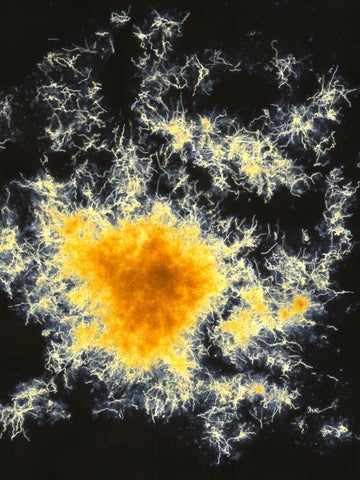
Research
Overview
In order to explore the microbial world, we leverage a combination of molecular and cultivation-based approaches. By sequencing nucleic acids from microbial communities (amplicon sequencing, metagenomics, metatranscriptomics), we can begin answering questions about who is there and what they might do. We develop and apply bioinformatic techniques to analyze and visualize these data more efficiently. One drawback to molecular data is that, on their own, they fall short of demonstrating what the detected microoorganisms are actually doing. The ability to answer important mechanistic and functional questions is much stronger when molecular techniques are paired with cultivation-based experiments. Our laboratory maintains cultures that allow us to test their abilities to grow under environmentally relevant conditions and confirm their predicted abilities. And, for when our targeted microorganisms cannot be grown on their own, we use isotope-labelling approaches to demonstrate what substrates they use while preserving them within their samples.
Below are several ongoing projects in my laboratory - please contact me if you would like to participate in this research as a student (co-op, Biol 499 project, graduate) or postdoctoral researcher.

Nitrogen Cycle
The nitrogen cycle is core to Earth’s biogeochemistry and is a primary purpose of water treatment systems. Especially given recent discoveries of new microorganisms that contribute to nitrogen cycle processes, this is an exciting area of ongoing discovery. We focus on engineered aquatic environments to identify factors that control the abundances and activities of microorganisms involved in nitrification, which is the conversion of ammonia to nitrite and nitrate. By combining both culture-dependent and culture-independent approaches, we expect that our results obtained from commonplace engineered environments (e.g., municipal wastewater reactors, aquarium filters) will extrapolate to global aquatic systems. Our research also explores connections between the nitrogen cycle and other cycles (e.g. carbon, phosphorous), aquatic and terrestrial environments, and basic and applied research directions.
Used Nuclear Fuel Disposal
Canada is the world's largest supplier of uranium and nuclear power is a cornerstone of a future green energy portfolio. Given that responsible use of nuclear power includes ensuring longterm stability of high-level used nuclear fuel, my laboratory investigates the microbiology of a proposed deep geological repository. We explore the microbial communities associated with deep subsurface samples that are relevant for a repository and conduct experiments with the bentonite clay that is a proposed engineered barrier component for a repository. This applied microbiology research is conducted in partnership with the Nuclear Waste Management Organization and the results of this research will help build a case for safe and longterm storage over hundreds of thousands of years and through multiple ice ages.


Boreal Shield Lakes
Millions of lakes throughout Canada, Fennoscandia, and Russia hold enormous potential for better understanding the microbial origins of life on the planet and modern freshwater biogeochemical cycling. Given conditions in many of these lakes that mimic early Earth oceans (e.g., high iron, low sulfur), we explore microorganisms in these lakes that use light to tap into the electrons available in reduced iron under anoxic conditions. In doing so, we have discovered exciting new bacteria that conduct photosynthesis in unexpected ways. We have also identified methane-oxidizing bacteria present at lake depths without oxygen, which would normally be required for their activity. Also, extensive chemical and structural diversity in these lakes allows for exploring factors that govern microbial community composition in aquatic systems more generally.